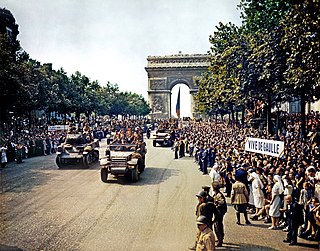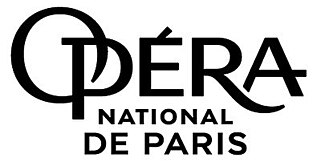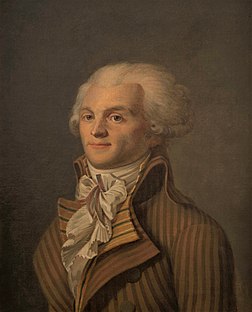
The Eiffel Tower is a wrought-iron lattice tower on the Champ de Mars in Paris, France. It is named after the engineer Gustave Eiffel, whose company designed and built the tower.

Paris is the capital and most populous city of France, with a population of 2,148,271 residents in an area of 105 square kilometres. Since the 17th century, Paris has been one of Europe's major centres of finance, diplomacy, commerce, fashion, science and arts. The City of Paris is the centre and seat of government of the Île-de-France, or Paris Region, which has an estimated official 2020 population of 12,278,210, or about 18 percent of the population of France. The Paris Region had a GDP of €709 billion in 2017. According to the Economist Intelligence Unit Worldwide Cost of Living Survey in 2018, Paris was the second most expensive city in the world, after Singapore, and ahead of Zürich, Hong Kong, Oslo and Geneva. Another source ranked Paris as most expensive, on a par with Singapore and Hong Kong, in 2018.

Marie Antoinette was the last Queen of France before the French Revolution. She was born an Archduchess of Austria and was the penultimate child and youngest daughter of Empress Maria Theresa and Francis I, Holy Roman Emperor. She became Dauphine of France in May 1770 at age 14 upon her marriage to Louis-Auguste, heir apparent to the French throne. On 10 May 1774, her husband ascended the throne as Louis XVI and she assumed the title Queen of France and Navarre, which she held until September 1791, when she became Queen of the French, as the French Revolution proceeded, a title that she held until 21 September 1792.

Louis XV, known as Louis the Beloved, was King of France from 1 September 1715 until his death in 1774. He succeeded his great-grandfather Louis XIV at the age of five. Until he reached maturity on 15 February 1723, the kingdom was ruled by Philippe II, Duke of Orléans, as Regent of France. Cardinal Fleury was his chief minister from 1726 until the Cardinal's death in 1743, at which time the king took sole control of the kingdom.

Henry IV, also known by the epithet Good King Henry or Henry the Great, was King of Navarre from 1572 and King of France from 1589 to 1610. He was the first monarch of France from the House of Bourbon, a cadet branch of the Capetian dynasty. He was assassinated in 1610 by François Ravaillac, a fanatical Catholic, and was succeeded by his son Louis XIII.

Notre-Dame de Paris, referred to simply as Notre-Dame, is a medieval Catholic cathedral on the Île de la Cité in the 4th arrondissement of Paris. The cathedral was consecrated to the Virgin Mary and considered to be one of the finest examples of French Gothic architecture. Its pioneering use of the rib vault and flying buttress, its enormous and colourful rose windows, as well as the naturalism and abundance of its sculptural decoration set it apart from the earlier Romanesque style. Major components that make Notre Dame stand out include one of the world's largest organs and its immense church bells.

Napoleon III, the nephew of Napoleon I, was the first president of France from 1848 to 1852, and the last French monarch from 1852 to 1870. First elected president of the French Second Republic in 1848, he seized power in 1851, when he could not constitutionally be re-elected, and became the emperor of the French. He founded the Second French Empire and was its only emperor until the defeat of the French army and his capture by Prussia and its allies in the Franco-Prussian War in 1870. He worked to modernize the French economy, rebuilt the center of Paris, expanded the French overseas empire, and engaged in the Crimean War and the Second Italian War of Independence.

The University of Paris, metonymically known as the Sorbonne, was a university in Paris, France, active 1150–1793, and 1806–1970.

The Champ de Mars is a large public greenspace in Paris, France, located in the seventh arrondissement, between the Eiffel Tower to the northwest and the École Militaire to the southeast. The park is named after the Campus Martius in Rome, a tribute to the Latin name of the Roman God of war. The name also alludes to the fact that the lawns here were formerly used as drilling and marching grounds by the French military.

Antoine de Rivarol was a Royalist French writer and translator who lived during the Revolutionary era. He was briefly married to the translator Louisa Henrietta de Rivarol.

The Liberation of Paris was a military battle that took place during World War II from 19 August 1944 until the German garrison surrendered the French capital on 25 August 1944. Paris had been ruled by Nazi Germany since the signing of the Second Compiègne Armistice on 22 June 1940, after which the Wehrmacht occupied northern and western France.

The Storming of the Bastille occurred in Paris, France, on the afternoon of 14 July 1789.

Île-de-France is the most populous of the 18 regions of France. It is located in the north-central part of the country and often called the région parisienne because it includes the city of Paris. Île-de-France is densely populated and economically important: it covers only 12,012 square kilometres, about 2% of France's territory, but has an official estimated population of 12,213,364 and accounts for nearly 30% of the French Gross Domestic Product (GDP).

The Paris Opera is the primary opera and ballet company of France. It was founded in 1669 by Louis XIV as the Académie d'Opéra, and shortly thereafter was placed under the leadership of Jean-Baptiste Lully and officially renamed the Académie Royale de Musique, but continued to be known more simply as the Opéra. Classical ballet as it is known today arose within the Paris Opera as the Paris Opera Ballet and has remained an integral and important part of the company. Currently called the Opéra national de Paris, it mainly produces operas at its modern 2,723-seat theatre Opéra Bastille which opened in 1989, and ballets and some classical operas at the older 1,979-seat Palais Garnier which opened in 1875. Small scale and contemporary works are also staged in the 500-seat Amphitheatre under the Opéra Bastille.

The Lady and the Duke is a 2001 period drama film by French director Éric Rohmer. The film was inspired by Ma vie sous la révolution, the colourful memoirs of Grace Elliott, an Edinburgh-born royalist caught up in the political intrigue following the French Revolution.

France, officially the French Republic, is a country whose territory consists of metropolitan France in Western Europe and several overseas regions and territories. The metropolitan area of France extends from the Mediterranean Sea to the English Channel and the North Sea, and from the Rhine to the Atlantic Ocean. It is bordered by Belgium, Luxembourg and Germany to the northeast, Switzerland and Italy to the east, and Andorra and Spain to the south. The overseas territories include French Guiana in South America and several islands in the Atlantic, Pacific and Indian oceans. The country's 18 integral regions span a combined area of 643,801 square kilometres (248,573 sq mi) and a total population of 67.08 million. France is a unitary semi-presidential republic with its capital in Paris, the country's largest city and main cultural and commercial centre. Other major urban areas include Lyon, Marseille, Toulouse, Bordeaux, Lille and Nice. France, including its overseas territories, has the most number of time zones of any country, with a total of 12.
Louis René Quentin de Richebourg, marquis de Champcenetz was governor of the Tuileries Palace at the time of the French Revolution. He was the father of his namesake, the journalist Louis René Quentin de Richebourg de Champcenetz. He was the personal enemy of the Duc d'Orleans Louis Philippe, who nevertheless enabled him to escape the guillotine on the request of Grace Elliott.

Maximilien François Marie Isidore de Robespierre was a French lawyer and statesman who was one of the best-known and most influential figures of the French Revolution. As a member of the Constituent Assembly and the Jacobin Club, he campaigned for universal manhood suffrage and the abolition both of celibacy for the clergy and slavery. In 1791, Robespierre became an outspoken advocate for the citizens without a voice, for their unrestricted admission to the National Guard, to public offices, and for the right to carry arms in self-defence. He played an important part in the agitation which brought about the fall of the French monarchy on 10 August 1792 and the summoning of a National Convention. His goal was to create a united and indivisible France, equality before the law and to abolish prerogatives.

L'Almanach des Muses was a French-language poetry magazine published in France.
Les Actes des Apotres was a French royalist newspaper that was published from 1789 to 1791 during the French Revolution.


















